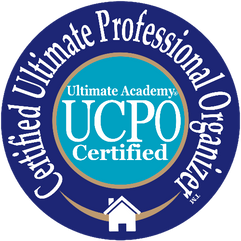Hoarding: What is it & How can an Organizer help
- Brittany Smith
- Sep 19, 2023
- 3 min read

When people hear the word hoarding they imagine the worst-case scenario; a home that is packed to the brim with items, garbage etc. that is both unsafe and unsanitary for the homeowner.
However, hoarding can range from moderate to severe and can manifest itself for a variety of reasons (trauma, grief, isolation, decrease in mobility etc.).
It is important to remember that hoarding is not all about the physical clutter of a home. Actually, physical clutter is more of a symptom and not the cause. Hoarding Disorder is a behaviour that should be treated by a mental health care professional with expertise in hoarding.
What are the Symptoms of Hoarding?
Listed below are a few common symptoms of hoarders:
Persistent difficulty in throwing away items.
Attaching an emotional element to every item
Acquiring items they do not need.
Feeling safe surrounded by many items
Not throwing out waste
Believing there is no problem.
It is also important to note the distinction between a hoarder and a collector. A collector typically looks for a specific item and will organize them to be displayed for others, and themselves to enjoy. Hoarders tend to save multiple types of random items and store them, in haphazard and sometimes unsafe ways.
As a Professional Organizer, I have worked with Clients that still meet some of the criteria listed above, but are a far cry from hoarding. When evaluating these criteria, it is important to understand the scale and magnitude each has upon their day-to-day lives. There is a big difference between someone resisting the idea of decluttering their messy basement to someone who places value on both rotting garbage and family heirlooms.
How can a Professional Organizer help?
Combining the strategies of both a Mental Health Professional and a Professional Organizer can lead to great success for a Hoarder, however, it all starts with their willingness to change the behaviour themselves.
To help them overcome their fear of the process, or being judged for their home, a Professional Organizer must be empathetic and patient. I make sure this is the case with all of my Clients, but this is especially important with Hoarders. If they can turn to you as a support throughout the process, they will be more receptive to the changes and feel encouraged to be an active participant in the process.
The organizing knowledge and skills a Professional Organizer has are invaluable to someone overcoming hoarding, but for any of it to be successful you need to be approachable, dependable, and above all objective. If the Client does not trust you to respect their needs through the process, they will likely end the project before completion.
Approaching an organizing project with a Hoarder is very different than other clients. They can quickly become overwhelmed, lose focus, and be discouraged by the lack of progress. An Organizer is flexible and should be able to calibrate their systems and strategies to meet the Client's needs. The more comfortable and at ease they are with you, the higher your chances are for both short and long-term success.
As the Organizer, your role is to guide the Client through the decision process, and with a knowledgeable and sympathetic voice, the Client will feel like their needs are being met. This is something that as an objective third party you can provide, unlike family or friends who may be judgemental or want to rush the process just to be done.
Creating items such as an organizing plan (differentiate between project & task) and an action plan (scheduling tasks with realistic goals) can be vital to the success of the work you and the Client complete together, and allow them to see progress, especially when they become discouraged.
All of these small traits, combined with your expertise and skills make you one of the most qualified people to be assisting a Hoarder and making sure that you both have a positive and rewarding experience.
Now that you have a better understanding of what Hoarding is, and how a Professional Organizer, such as myself, can assist, I encourage you to share this article with friends and family.
If you or someone you know is experiencing symptoms of hoarding, reach out to a mental health professional and get the conversation started.
Remember, you are not alone and people are willing to help when you're ready. 💙
Ready to get started?
So am I! Please check out my services to find the perfect organizing package for you!
Fill out the form here to arrange your complimentary 30-minute phone consult with me, a Certified Professional Organizer, today!
Know someone who is looking to speak with a Professional Organizer? Check out my Client Referral Program to see how referring others can get you rewards!
About the Author: Brittany Smith lives in Ottawa, Canada with her husband and feline furbaby Zoey. She is a Certified Professional Organizer, Owner, and Founder of Control the Chaos, a Professional Organizing business that provides personalized in-home, virtual and digital organizing services aimed at transforming anyone's chaos into calm.











Comments